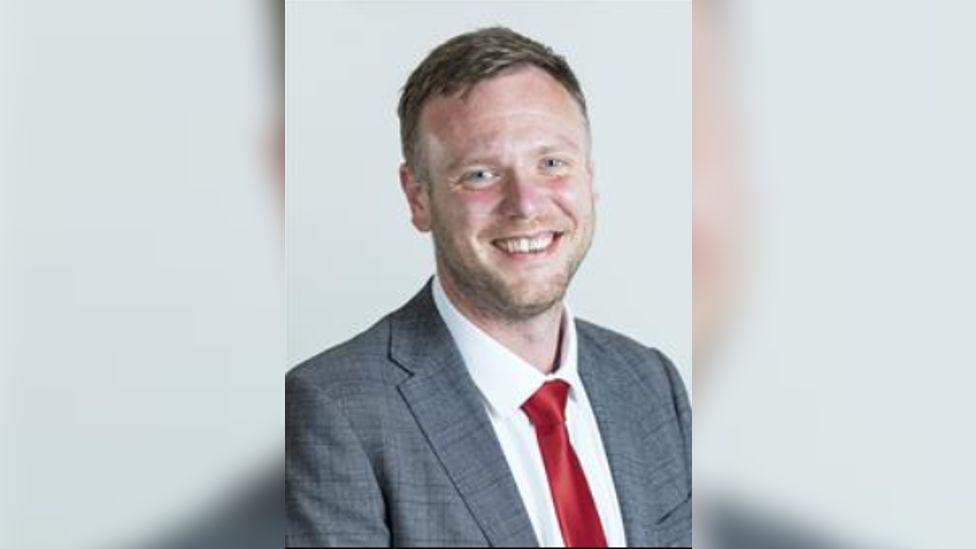Council leader 'delighted' by HIV scheme expansion

Councillor Jason Brock welcomed the expansion of a government HIV testing scheme
- Published
A council leader has said he is "delighted" his borough is included in the expansion of a government HIV testing programme.
Jason Brock, leader of Reading Borough Council, said the scheme was "exactly what is needed" to reduce transmission of the disease.
The opt-out programme means anyone attending an emergency department and getting a blood test in a high-risk area is automatically tested for HIV, unless they opt out.
It is expanding to 46 more emergency departments in high prevalence areas, including the Royal Berkshire Hospital in Reading, Southampton General Hospital, Royal Bournemouth Hospital and Poole Hospital, and Queen Alexandra Hospital in Portsmouth.
An estimated 4,500 people are living with undiagnosed HIV in England, the government has said.
It is hoped the expanded testing programme could identify "a significant proportion" of them.
The effectiveness of the expansion will be analysed by a new research project, backed by £20m of funding from the National Institute for Health and Care Research (NIHR).
People having blood tests in emergency departments will also be tested for other bloodborne viruses including hepatitis B and C.
HIV blood tests to be rolled out to more hospitals
- Published29 November 2023
A&E HIV testing a game changer - doctor
- Published1 December 2023
Free DIY home HIV tests offered in England
- Published6 February 2023
Some 33 emergency departments were involved in the initial 18 months of the testing programme.
Well over a million HIV tests were conducted and 934 people were identified, either living unknowingly with HIV or who had "disengaged" from HIV care.
Health secretary Victoria Atkins said diagnosing more people would increase the chances of "ending new transmissions of the virus and the stigma wrongly attached to it".
Richard Angell, chief executive of the Terrence Higgins Trust, said the "crucial" programme was the "testing turbo boost that’s needed".
"The evidence is crystal clear: testing everyone having a blood test in emergency departments for HIV works," he said.
Follow BBC South on Facebook, external, Twitter, external, or Instagram, external. Send your story ideas to south.newsonline@bbc.co.uk, external.